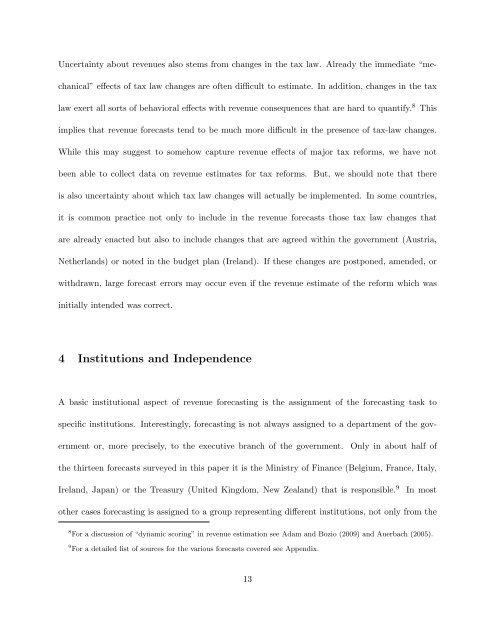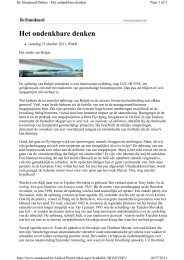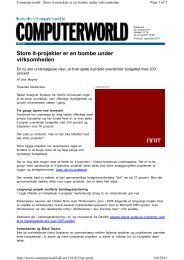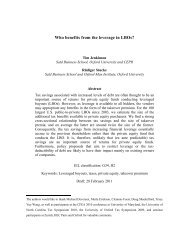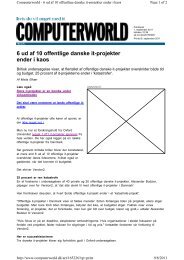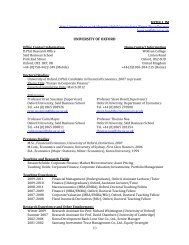Revenue Forecasting Practices: Differences across Countries and ...
Revenue Forecasting Practices: Differences across Countries and ...
Revenue Forecasting Practices: Differences across Countries and ...
You also want an ePaper? Increase the reach of your titles
YUMPU automatically turns print PDFs into web optimized ePapers that Google loves.
Uncertainty about revenues also stems from changes in the tax law. Already the immediate “me-<br />
chanical” effects of tax law changes are often difficult to estimate. In addition, changes in the tax<br />
law exert all sorts of behavioral effects with revenue consequences that are hard to quantify. 8 This<br />
implies that revenue forecasts tend to be much more difficult in the presence of tax-law changes.<br />
While this may suggest to somehow capture revenue effects of major tax reforms, we have not<br />
been able to collect data on revenue estimates for tax reforms. But, we should note that there<br />
is also uncertainty about which tax law changes will actually be implemented. In some countries,<br />
it is common practice not only to include in the revenue forecasts those tax law changes that<br />
are already enacted but also to include changes that are agreed within the government (Austria,<br />
Netherl<strong>and</strong>s) or noted in the budget plan (Irel<strong>and</strong>). If these changes are postponed, amended, or<br />
withdrawn, large forecast errors may occur even if the revenue estimate of the reform which was<br />
initially intended was correct.<br />
4 Institutions <strong>and</strong> Independence<br />
A basic institutional aspect of revenue forecasting is the assignment of the forecasting task to<br />
specific institutions. Interestingly, forecasting is not always assigned to a department of the gov-<br />
ernment or, more precisely, to the executive branch of the government. Only in about half of<br />
the thirteen forecasts surveyed in this paper it is the Ministry of Finance (Belgium, France, Italy,<br />
Irel<strong>and</strong>, Japan) or the Treasury (United Kingdom, New Zeal<strong>and</strong>) that is responsible. 9 In most<br />
other cases forecasting is assigned to a group representing different institutions, not only from the<br />
8 For a discussion of “dynamic scoring” in revenue estimation see Adam <strong>and</strong> Bozio (2009) <strong>and</strong> Auerbach (2005).<br />
9 For a detailed list of sources for the various forecasts covered see Appendix.<br />
13


